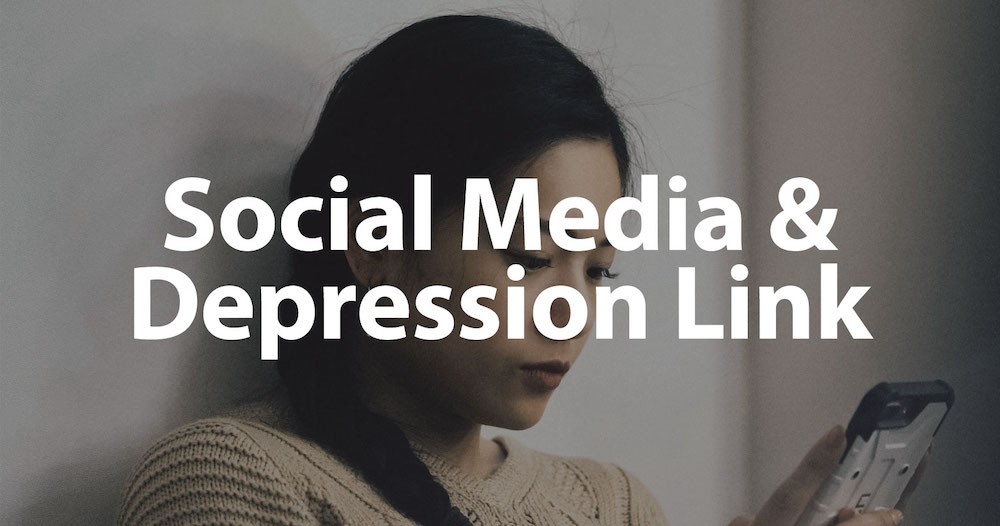
If you are of a certain age, you will remember your childhoods filled with hours in swimming pools, making mud pies for the fairies at the end of the garden, or getting the kid next door to climb over the wall for an afternoon of fun. Even as teenagers, our lives were about saving money to get the next album of our favorite artists, or if the cord for the telephone was long enough to reach the sofa. It is a difficult task not to compare our childhood from then till now, they are so different after all. Some say that the current generation is the lucky one. Living life on a silver platter with everything available at their fingertips. Yet, this life is predominantly lived, scrolling through the screen of your device or whatever social media platform is currently the latest fad. Is that truly a blessing to be able to know what your bestie did six seconds ago, or is it a condemnation? Is there a link between social media and depression? This article will discuss the possibility of depression induced by social media.
Is there a link between social media and depression?
 There are an estimated, 4 billion social media users across the globe. In a recent study, evidence has amounted to suggesting that the use of social media can facilitate, not directly cause, an array of mental health issues and mood disorders like depression and anxiety or even low self-esteem. In 2017, a study was conducted finding that there has been an increase in reported cases of people showing signs of depression by 33%, as well as a 65% increase in female suicide rates for young people around 16 to 18 years of age. This was between the years 2010 and 2015. Simultaneous with this increase was the dawn of the age of smartphones. Another study has found that people showed more signs of happiness than symptoms of depression if they limited their amount of time with their devices or the use of social media in general. This coincidence can not prove that social media is the ultimate cause for depression but the link is uncanny.
There are an estimated, 4 billion social media users across the globe. In a recent study, evidence has amounted to suggesting that the use of social media can facilitate, not directly cause, an array of mental health issues and mood disorders like depression and anxiety or even low self-esteem. In 2017, a study was conducted finding that there has been an increase in reported cases of people showing signs of depression by 33%, as well as a 65% increase in female suicide rates for young people around 16 to 18 years of age. This was between the years 2010 and 2015. Simultaneous with this increase was the dawn of the age of smartphones. Another study has found that people showed more signs of happiness than symptoms of depression if they limited their amount of time with their devices or the use of social media in general. This coincidence can not prove that social media is the ultimate cause for depression but the link is uncanny.
Does social media cause depression and anxiety?
Jordyn Young, a senior at the University of Pennsylvania, said in a study based on the possibility of social media causing depression and anxiety.
“What we found overall is that if you use less social media, you are actually less depressed and less lonely, meaning that the decreased social media use is what causes that qualitative shift in your well-being.”
There are many upsides to being so connected. Our parents never had the access to see what their friends are doing from across the globe, even emails seemed foreign. It is amazing to be able to wish our friends and family members congratulations when they announce engagements or whatever. But that is only one portion of the social networking world. We have been force-fed a never-ending stream of news and gossip, it’s hard to put our phones down or close that tab where all the juicy information is coming from. Cyberbullying is a product of this. Certain people cannot resist the gossip and the spreading of rumors. One drastic change to the intensity of bullying was the rise of social media and the sudden power we possess to post embarrassing images of your enemies to sabotage their reputation. Cyberbullying comes in many other different forms but its effect can be extremely detrimental to the victim’s self-esteem.
 This is linked to the fact that we humans are social beings. We crave to feel connected and accepted and social media provides that reinforcement, even when we are in the privacy of our own rooms. This can be seen as helpful for those who struggle with depressive symptoms or social anxieties. This way they are able to feel a part of social excursions with friends simply by watching their Instagram stories. As ideal as this may seem, they then limit the number of social interactions or real-life experiences. Or, in some cases, people are constantly witnessing the gussied-up versions of social events which make them feel left out. This has been a great contributor to what we know as FOMO.
This is linked to the fact that we humans are social beings. We crave to feel connected and accepted and social media provides that reinforcement, even when we are in the privacy of our own rooms. This can be seen as helpful for those who struggle with depressive symptoms or social anxieties. This way they are able to feel a part of social excursions with friends simply by watching their Instagram stories. As ideal as this may seem, they then limit the number of social interactions or real-life experiences. Or, in some cases, people are constantly witnessing the gussied-up versions of social events which make them feel left out. This has been a great contributor to what we know as FOMO.
FOMO, or, the fear of missing out, is a common condition among young adults. It is largely about being fearful that we are disconnected from our social networks and environments. The negative effect this brings is the inability to be present with what is currently happening around you. This could lead you to lose out on once-in-a-lifetime opportunities, or even drifting away from real friends. Rather than having a good time with your family or hanging out with your mates, you obsess over why you did not score an invite to Sarah’s Snapchat party.
Physical activity is one of the greatest methods to combat depression, stress, anxiety, and an array of other debilitating states of being. Studies have noted that a possible cause of social media-induced depression could be contributed to the fact that people are lounging around going through different social media sites and no longer exercising. Nature is included in the need for physical activity. You can go for hikes, jump off waterfalls or even do some gardening. It is not necessary for you to run a marathon, but accomplishing something that was hard work for you as an individual can boost your dopamine levels, thus improving your overall mood.
Social media and depression statistics & facts
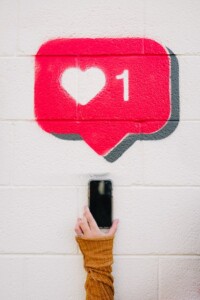 Social media has a multitude of effects on various different people. It is astounding, however, the sudden increase in mental health disorders since the rise of this new age. Here are a few statistical examples of the suggested effects of social media.
Social media has a multitude of effects on various different people. It is astounding, however, the sudden increase in mental health disorders since the rise of this new age. Here are a few statistical examples of the suggested effects of social media.
1. Phantom vibrations affect 89% of undergraduate students.
The fear of missing out leaves us waiting desperately for a reply, a comment on our latest profile picture, or an invite out. This intense desire for messages leaves them imagining they did receive one. To the point that they actually feel their smartphone vibrate.
https://etactics.com/blog/social-media-and-mental-health-statistics
2. 50% increase in depression in girls in 2012 to 2015.
Social media brings a lot of pressure on young women and girls in this modern world. We are constantly comparing ourselves to impossibly perfect people on our newsfeeds and it is hard to stop thinking self-sabotaging thoughts.
3. 63% increase in depression in adults from 18 to 25 years, from 2009 to 2015.
https://etactics.com/blog/social-media-and-mental-health-statistics
4. Only 5% of people see the benefits of social media.
38% see it as a destructive and harmful tool.
https://etactics.com/blog/social-media-and-mental-health-statisticsCognitive dissonance plays a huge part in this one.
5. 48% increase in suicidal thoughts in young adults from 2008 to 2017
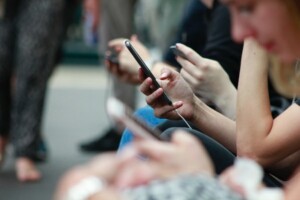 Social isolation is a depressive symptom. This prevents you fo making friends or enjoying your time with them so loneliness becomes your friend. When depressive moods sink in, sometimes suicidal thoughts definitely crossed their mind.
Social isolation is a depressive symptom. This prevents you fo making friends or enjoying your time with them so loneliness becomes your friend. When depressive moods sink in, sometimes suicidal thoughts definitely crossed their mind.
https://etactics.com/blog/social-media-and-mental-health-statistics
6. According to the questionnaire on American teenagers by Pew Research Center in 2018, one in six teenagers experience cyberbullying in the form of:
- Receiving threats (16%)
- Gossip and rumors (32%)
- Having your whereabouts tracked by strangers (21%)
- Receiving unwanted nudity or even pornographic pictures (25%)
https://onlinedegrees.unr.edu/online-master-of-public-health/impact-of-social-media-on-youth-mental-health/
7. 17% of teenagers agree social media negatively affects their friendships and romantic relationships.
https://onlinedegrees.unr.edu/online-master-of-public-health/impact-of-social-media-on-youth-mental-health/
8. Facebook subscribers declined from 71% to 51% from 2014 to 2015.
- Instagram subscribers sit at 71%
- Youtube subscribers sit at 85%
- Snapchat is at 69%
https://onlinedegrees.unr.edu/online-master-of-public-health/impact-of-social-media-on-youth-mental-health/
How social media and depression studies can help you avoid this problem
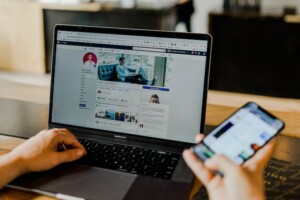 Social media-induced depression can be daunting but it can also be avoided. This may not be an easy task for most of us because we are so reliant on the different platforms. Here are some tips to avoid the risk of depression.
Social media-induced depression can be daunting but it can also be avoided. This may not be an easy task for most of us because we are so reliant on the different platforms. Here are some tips to avoid the risk of depression.
1. Constrict your social media usage in certain situations
If you are hanging out with your friends at a bbq, there is no point detaching yourself from the current fun being experienced by immersing yourself in Instagram stories of people doing other things and possibly feeling envious.
2. Fewer social networks to distract you.
Limit yourself to one or two social media platforms. Too much stimulation can be overwhelming and harmful to our overall well-being.
3. Do not open any social media platforms first thing in the morning.
The same goes for scrolling through Facebook just before you go to sleep. This can have a heavy impact on the start of your day or ending it on a negative note.
4. Follow your close friends and avoid negative pages or accounts
This way you’ll keep up-to-date on all positive announcements from your friends and families and you will not be fronted with self-sabotaging thoughts induced by judgemental articles.
5. Watch more animal videos.
Certain studies have suggested the benefits of watching cute animal videos online. Laughter brings you happiness
6. Be mindful of your social media experiences.
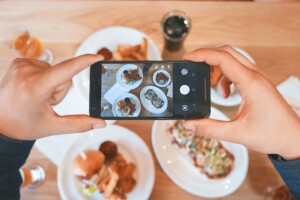 It is always helpful if we are honest with ourselves. If we deny something, it could be a display of our true feelings of doubt on that topic. Try to understand your feelings about your social media experience.
It is always helpful if we are honest with ourselves. If we deny something, it could be a display of our true feelings of doubt on that topic. Try to understand your feelings about your social media experience.
7. Avoid notifications.
With the mass amount of apps we all have on our devices, it will be overwhelming and extremely consuming to have your smartphone beeping every five seconds. Switch the notifications off from your social media apps and leave your instant messaging, or your main source of communications app, be the bare minimum of beeps from your device.
8. Reach out to those crying out for help.
Some people are not aware of their attempts to get attention. Depression is often caused by loneliness or feeling like an outsider. If you see someone displaying any symptoms of depression, try and include them in your social gatherings. It could save their life.
Key takeaways on the social media depression and anxiety connection
 Even though there is very little actual proof of social media being the direct cause of depression we cannot deny the coincidental influence it has had since the beginning.
Even though there is very little actual proof of social media being the direct cause of depression we cannot deny the coincidental influence it has had since the beginning.
“If you’re spending a lot of time on your phone, you have less time for activities that can build confidence, a sense of achievement, and connectedness,” explains Dr. Hamlet.
This perfectly explains the necessity of adding meaningfulness into our lives. Social media can make us feel like we are drowning in a world of negativity, and a lot of the time it isn’t related to us at all. But we all get swept away by it regardless. By adding meaning in the form of being present or exercising regularly to achieve a fitness level can give you a great sense of accomplishment. Not only does placing social media on a lesser pedestal allow for more time for meaningfulness, but it also adds meaningfulness to our present moment. We can be grateful for what we have instead of fretting about what other people are doing or posting.
“Basically, multitasking isn’t possible,” Dr. Hamlet notes. “What you end up doing is really just switching back and forth between two tasks rather quickly. There is a cost to the brain.”
Does social media make you lonely?
Everything in moderation. This phrase is important with social media as too much time spent on the different platforms can be time-consuming. It can have you socially isolating without you even realizing it.
Does social media affect children’s mental health?
It is suggested so. They are not spending the time on the things that improve their lifestyle like playing in the sun or bargaining with floating toys in the pool. Both facilitate important life lessons through those activities.
How can someone get addicted to social media?
Social media praise can activate the are of your brain which activates when taking addictive supplements. Your brain then produces and releases dopamine when you get a notification on your phone or receive a flirty comment on your latest profile picture. This feeling can become addictive because your brain relates the feeling of getting a “reward” to the drug of choice. In this case, one of the many social media platforms.
 Written by:
Written by:
Jade Small



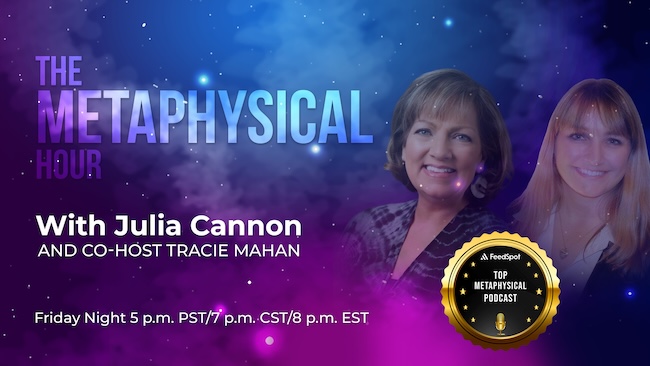
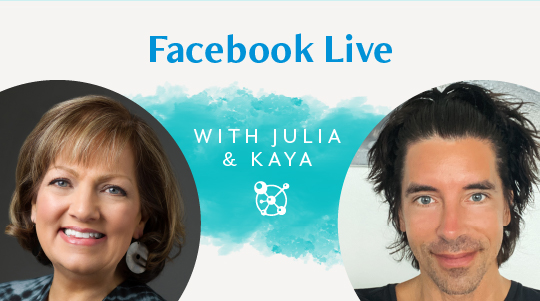
Leave a Reply
You must be logged in to post a comment.